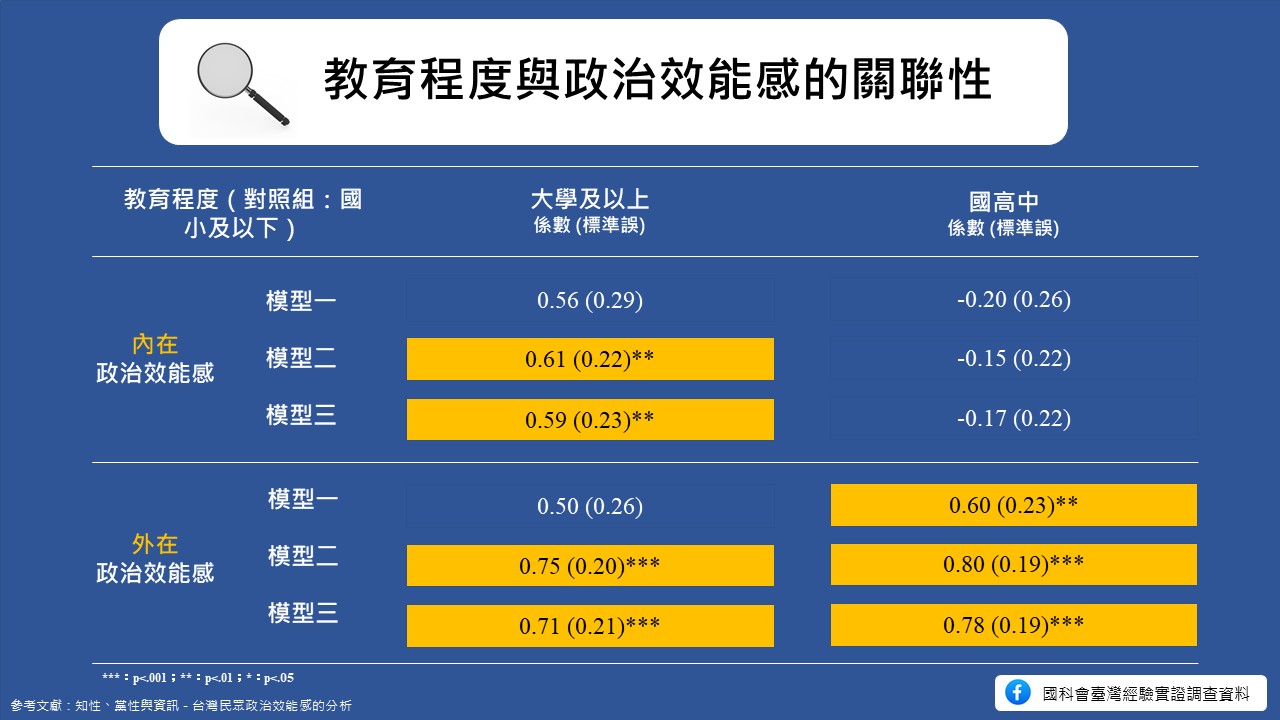Exploring the Relationship Between Educational Attainment and Political Efficacy
In 2016, Donald Trump's election as President of the United States marked a dramatic shift in political style. Entering the White House as an “anti-establishment” figure, Trump directly challenged the political elite, triggering profound upheaval in American politics and reverberations across the global political landscape. With the slogan "Make America Great Again," he tapped into widespread dissatisfaction and disillusionment, highlighting the growing tension between elitism and populism.
🔍 Is Political Participation Truly Equal?
The contradiction between elite dominance and mass mobilization did not begin with the Trump era, nor is it unique to the United States. In many democratic societies, the question of “Who really has the capacity to participate in politics?” has long existed. This structural tension is also present in other democracies, including Taiwan. For instance, Professor Chen Lu-Huei of National Chengchi University’s Department of Political Science, along with graduate student Lien Wei-Ting, has explored the relationship between educational attainment and political efficacy using data from the Taiwan’s Election and Democratization Study (TEDS).
📈 Their research found a significant positive correlation between education level and both internal and external political efficacy—the former referring to individuals’ beliefs about whether the government is responsive to their needs, and the latter indicating their sense of personal influence over political outcomes. The findings suggest that people with higher levels of education are more likely to feel capable of political participation and, as a result, are more inclined to engage actively in elections, advocacy, petitions, and other forms of political action.

📚 However, this study was based on nationwide data from 2004, a time when higher education in Taiwan was not as widespread as it is today.
With the rapid expansion of high schools and universities in recent years, the overall educational attainment of the Taiwanese population has significantly increased. This shift suggests that the relationship between education and political participation may have evolved. To understand the latest trends, researchers can refer to the 2024 edition of the Taiwan’s Election and Democratization Study (TEDS), which includes a wide range of indicators covering legislative, presidential, and local elections.
🧠 Equal Rights ≠ Equal Opportunities?
While democratic systems guarantee every citizen the right to vote and participate, in practice, those best equipped to exercise these rights often come from groups with greater access to education, information, and social networks.
The populist wave sparked during the Trump era in the U.S. can, in part, be seen as a backlash against these structural inequalities. Yet whether this wave has truly disrupted elite dominance—or merely transformed it into a new form of mobilization—remains a critical and ongoing question for democratic societies to explore.
Original links:Education, Partisanship, and Information: An Analysis of Sense of Political Efficacy among the Electorate in Taiwan

